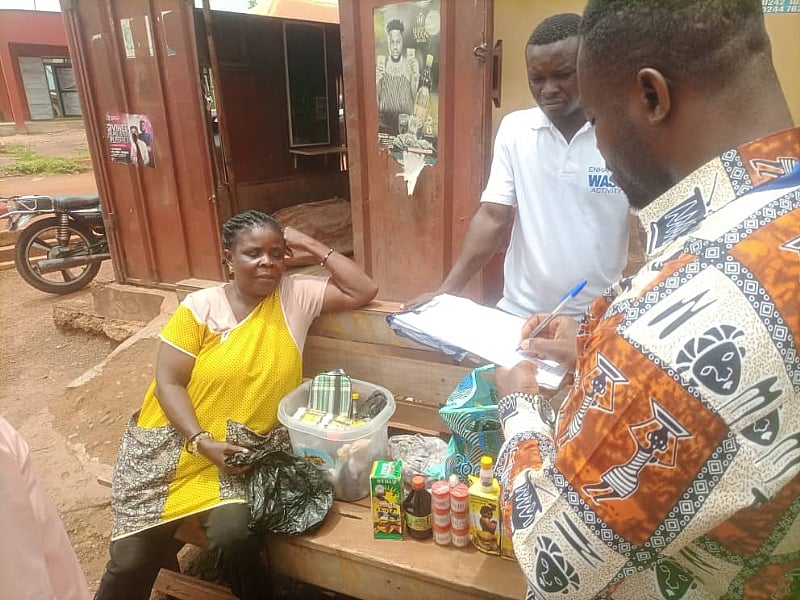The Food and Drugs Authority (FDA) embarked on a critical mission to safeguard public health in the Krachi East Municipality of Dambai, Oti Region, on September 10, 2025. This operation was prompted by a concerning rise in typhoid cases in the region, underscoring the need for stringent oversight of food and medicinal products. The FDA’s focus, however, expanded beyond food establishments when officials encountered Madam Victoria Dordoe, a 54-year-old woman transporting a significant quantity of unregistered traditional remedies. This discovery exposed a potential public health risk associated with the unregulated distribution and consumption of these products. The FDA swiftly intervened by seizing the unregistered remedies, demonstrating their commitment to protecting the population from potentially harmful substances.
The confiscated traditional remedies presented a complex array of concoctions, each with its own unique and often evocative name. Among them were syrup bazouka AKA 47, bombaraba premiere qualite, nyame na ye, and follow me like dog, showcasing a vibrant, albeit unregulated, traditional medicine market. The very names themselves hint at the powerful claims and perceived efficacy attributed to these remedies within the local community. This underscores the intricate interplay between traditional practices, cultural beliefs surrounding health, and the need for effective regulatory oversight to ensure both public safety and the preservation of cultural heritage. The eclectic mix of names further illustrates the diverse range of ailments these remedies purportedly addressed, highlighting the important role traditional medicine plays in many communities.
The FDA’s decision to detain these products was based on a crucial concern: the potential presence of unapproved or harmful ingredients, including steroids. The inclusion of steroids, while potentially effective for certain conditions under strict medical supervision, poses significant health risks when used without proper oversight and dosage control. The presence of unapproved substances raised further alarm bells, as their unknown nature and potential interaction with the human body represented an unacceptable level of risk to public health. This underscores the FDA’s mandate to ensure that all medicinal products, including traditional remedies, meet rigorous safety and efficacy standards before being made available to the public.
Mr. Gorden Akurugu, the Volta and Oti Regional Director of the FDA, articulated the agency’s unwavering commitment to safeguarding public health and safety. He highlighted the paramount importance of regulatory compliance in ensuring that all products consumed by the public adhere to established standards. This emphasizes the proactive nature of the FDA’s role, not simply reacting to health crises but actively working to prevent them through consistent monitoring and enforcement. Mr. Akurugu’s statement serves as a clear message to both producers and consumers of traditional remedies: adherence to regulatory guidelines is non-negotiable when it comes to protecting public health.
The FDA’s actions in Dambai reflect a broader national strategy to address the complex challenges associated with regulating traditional medicines. Ghana, like many other countries, recognizes the significant role traditional medicine plays in its healthcare system. However, balancing this recognition with the imperative to safeguard public health necessitates a robust regulatory framework that ensures both the preservation of traditional practices and the elimination of potentially harmful products. This requires a multi-faceted approach, including public education campaigns, collaboration with traditional healers, and ongoing monitoring of the market to identify and address potential risks.
The seizure of these unregistered traditional remedies in Dambai represents a critical intervention in protecting the health of the local population. It highlights the ongoing efforts of the FDA to ensure that all medicinal products, regardless of their origin, meet stringent safety standards. This incident serves as both a cautionary tale about the potential dangers of unregulated remedies and a testament to the FDA’s unwavering commitment to safeguarding public health in Ghana. The ongoing dialogue between the FDA and practitioners of traditional medicine is crucial for finding a sustainable path forward that respects both tradition and the imperative for public safety.


